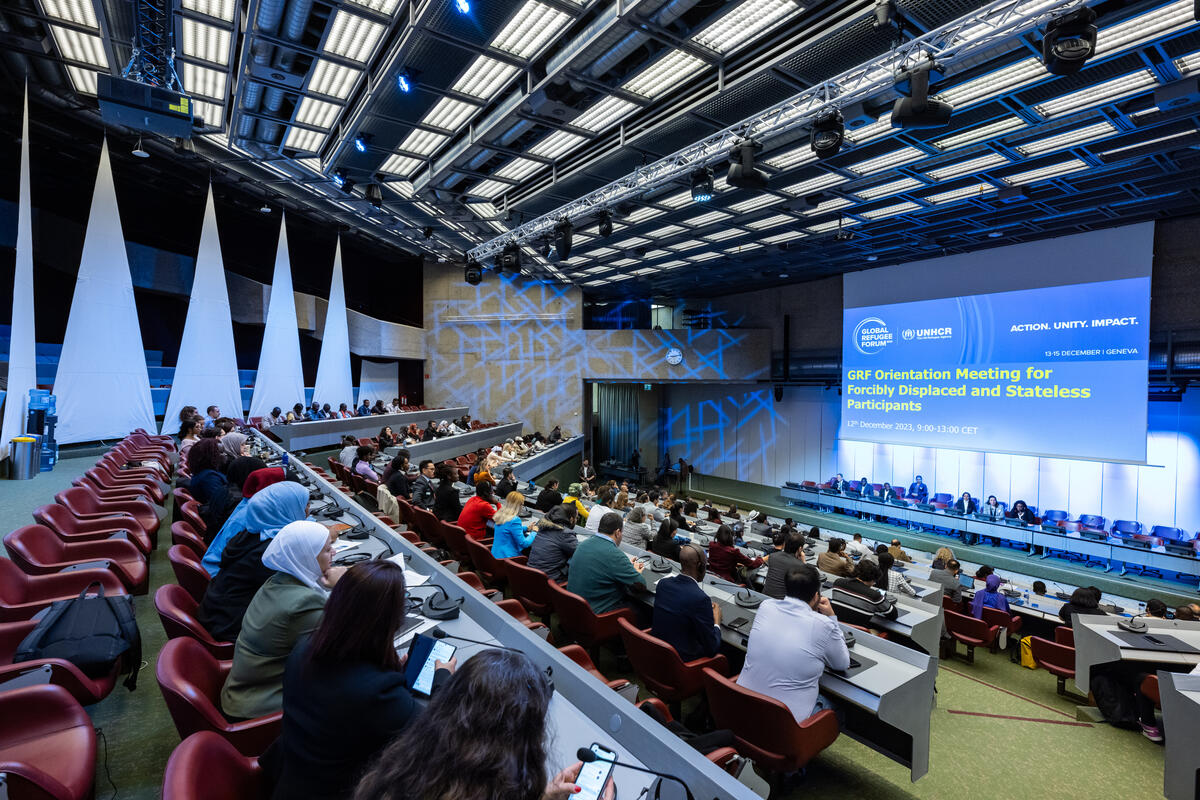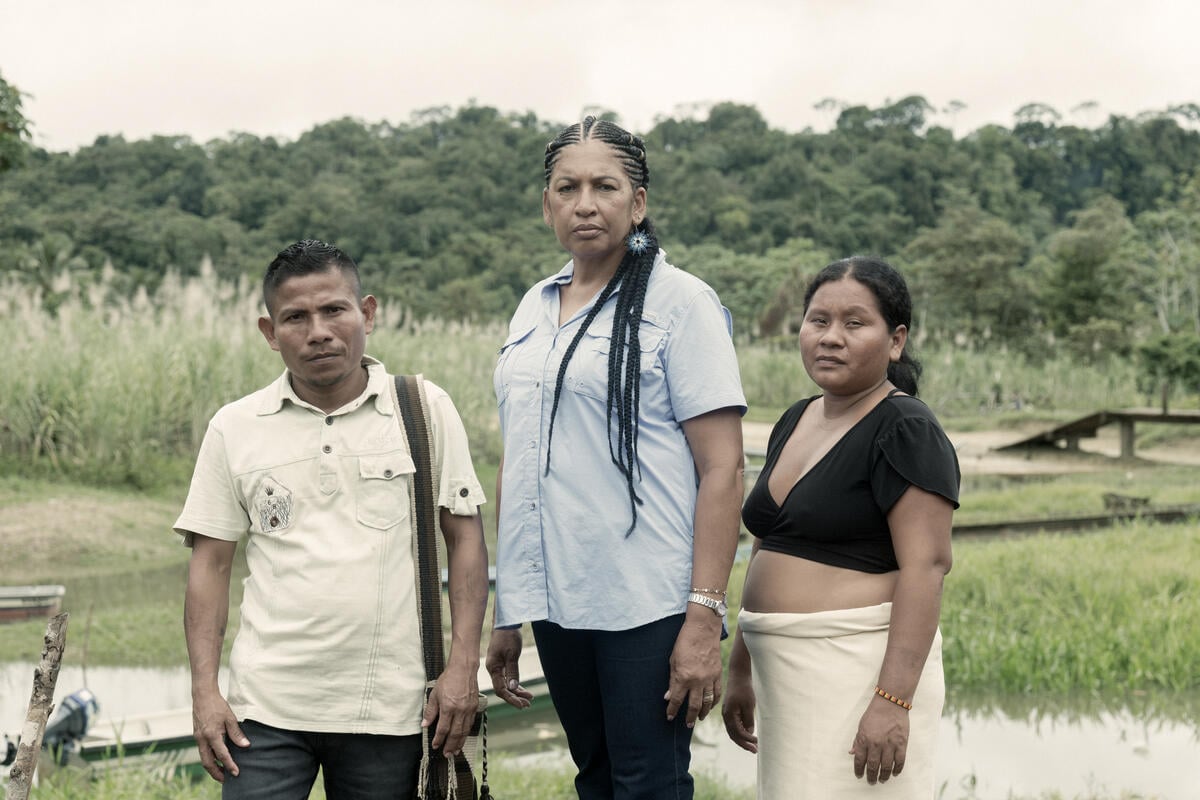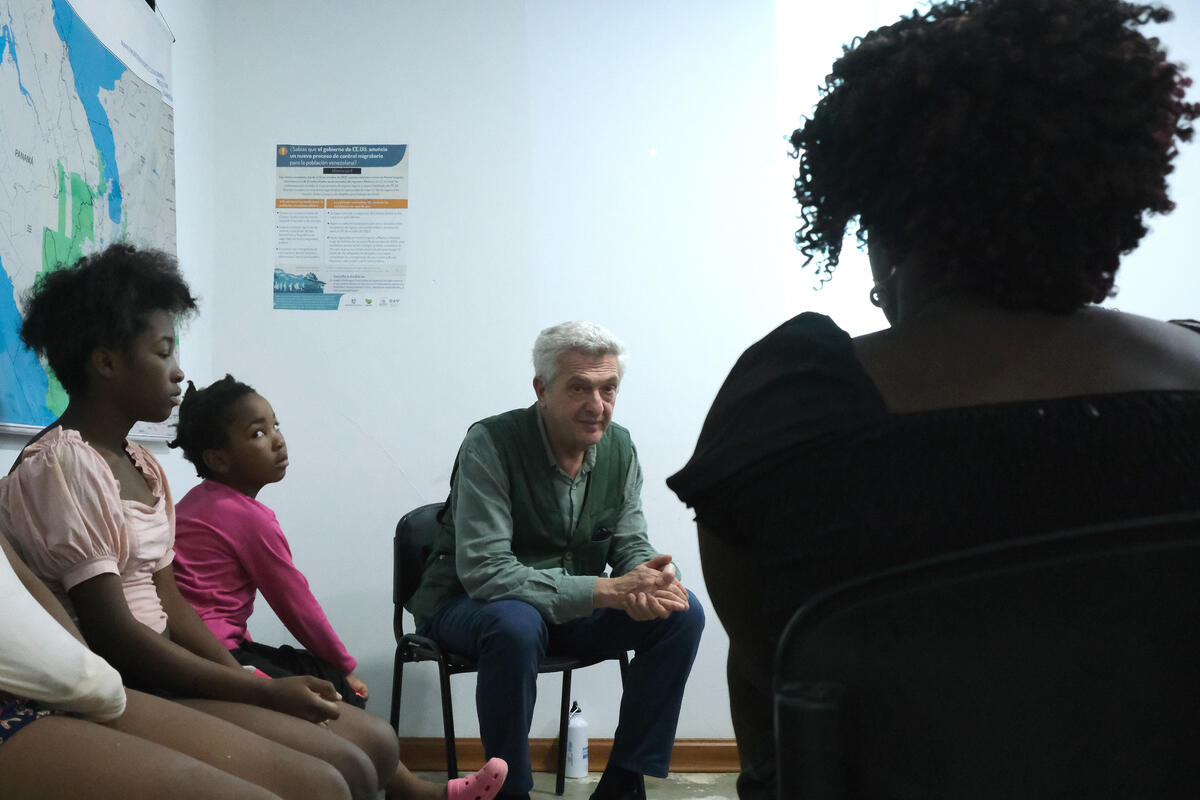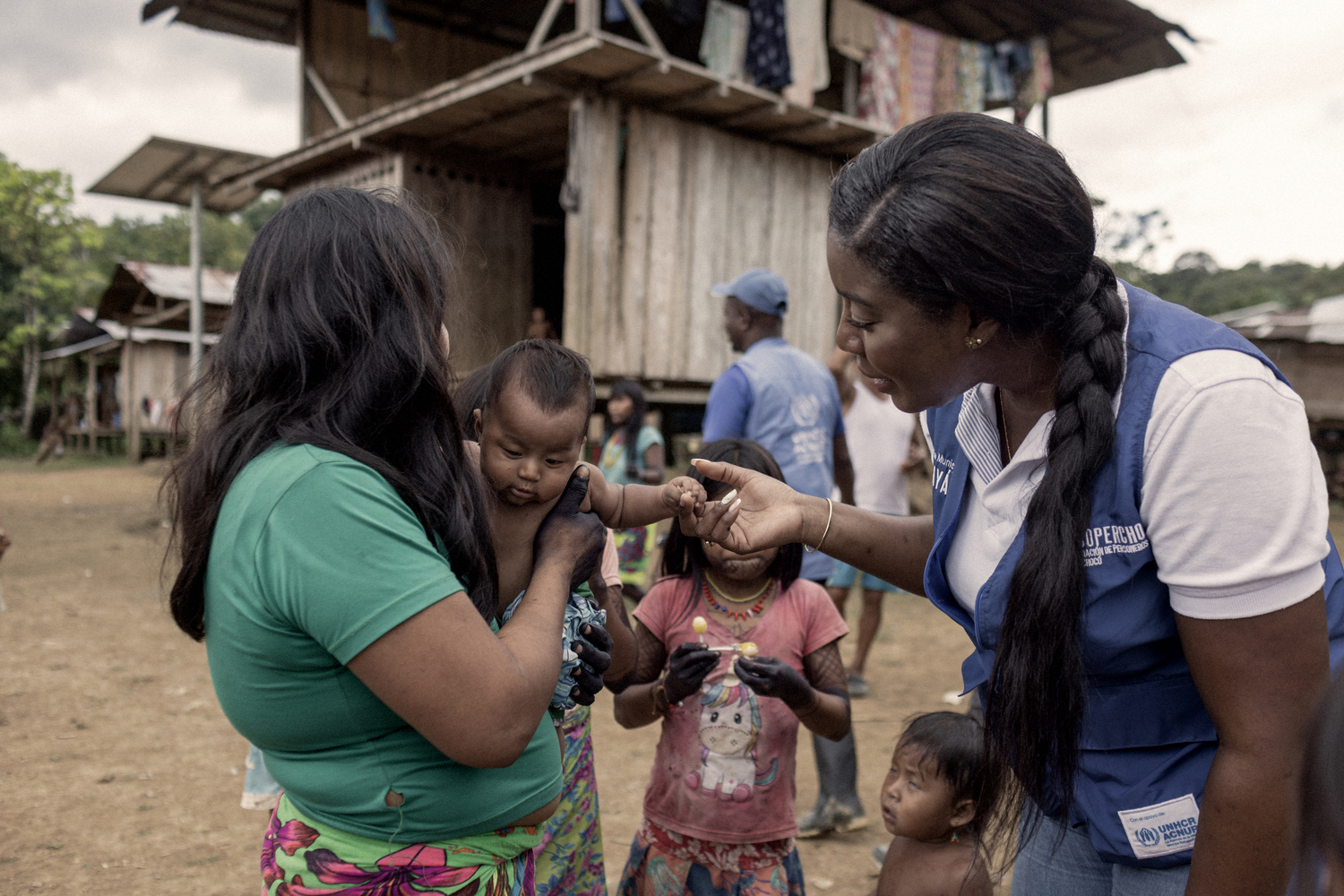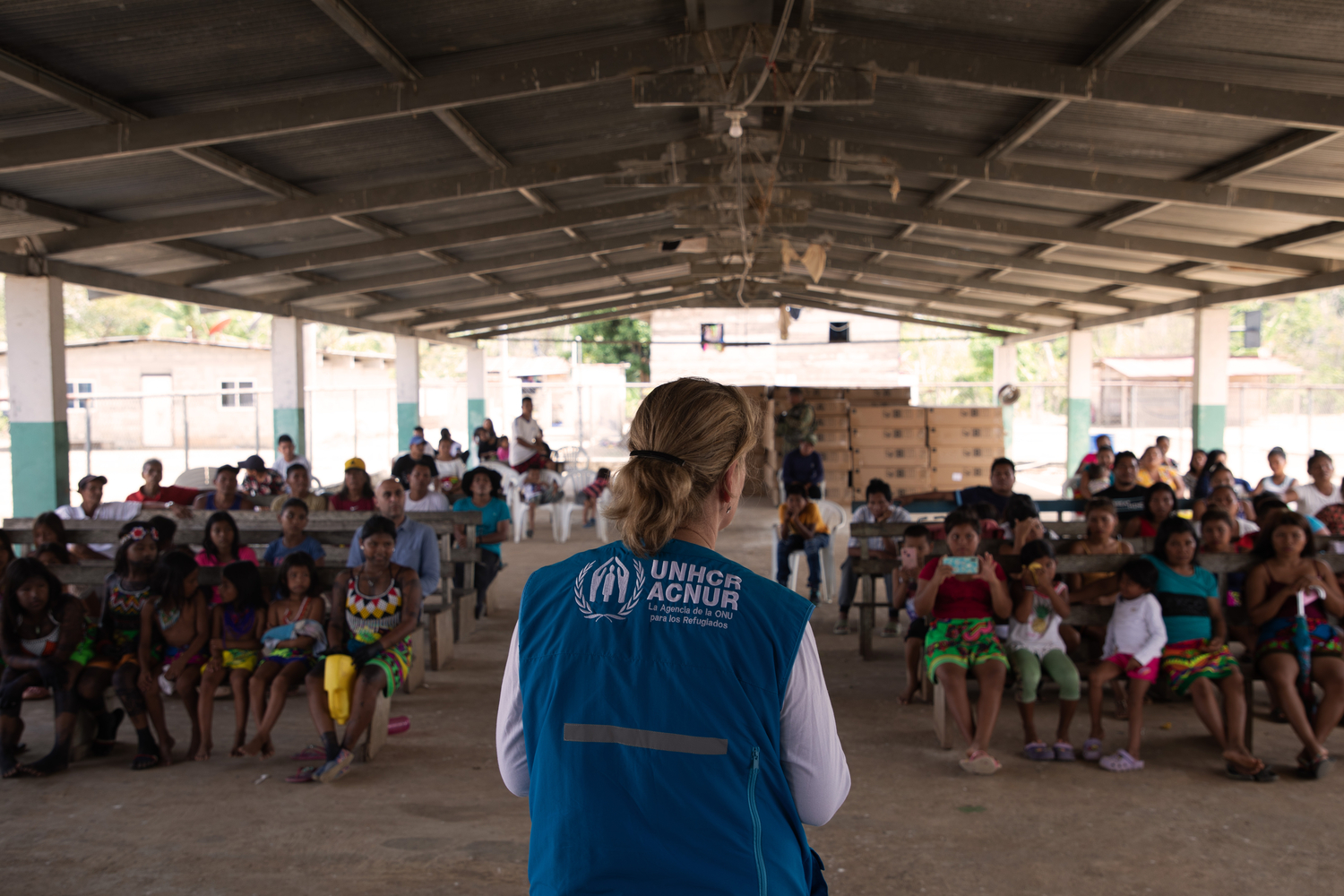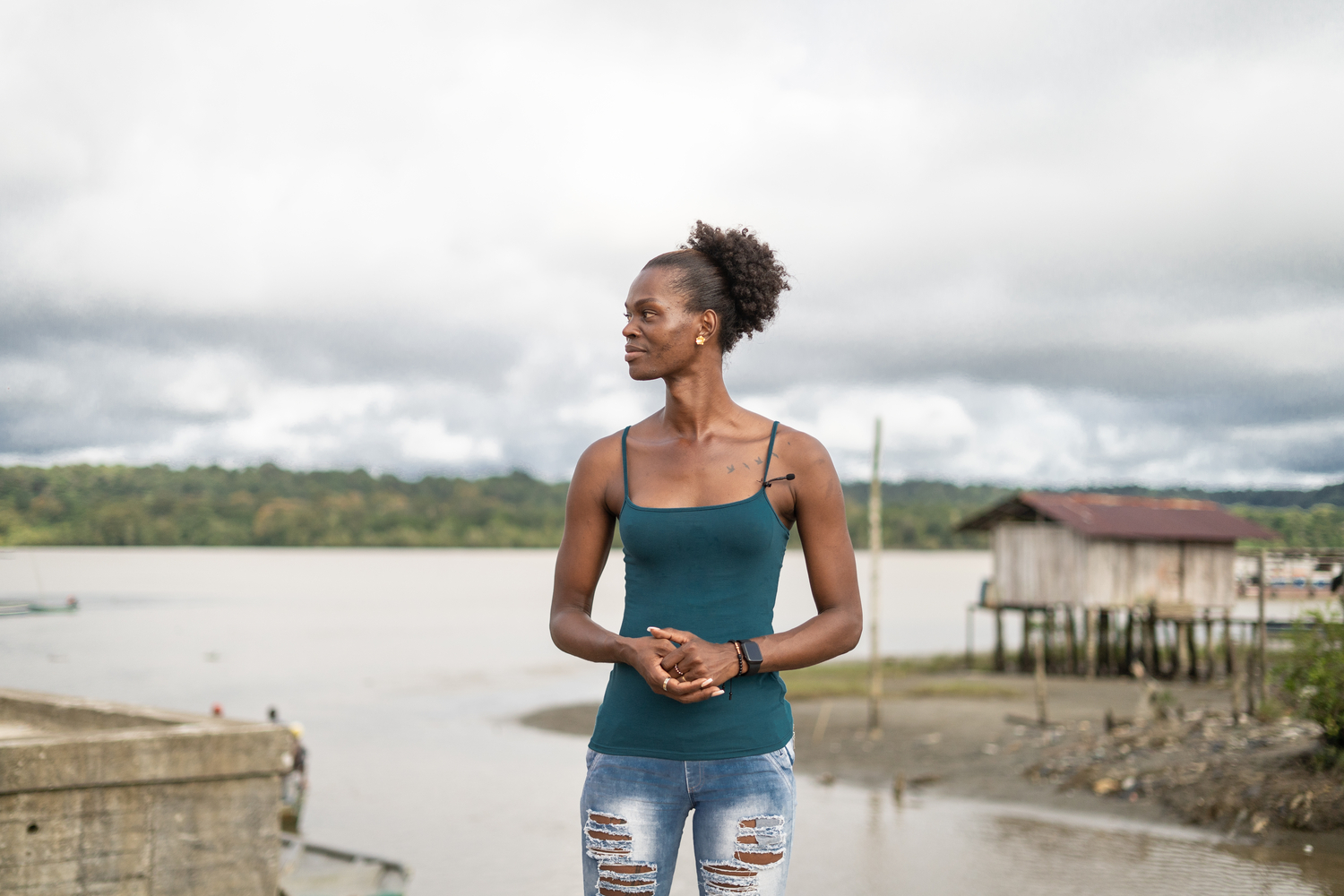Feature: Homecoming marks end of odyssey for Colombian refugees
Feature: Homecoming marks end of odyssey for Colombian refugees

JURADÓ, Colombia (UNHCR) - The glowering mid-day sun pounded hard over the Pacific Ocean as 26 Colombian families boarded a Panamanian navy ship in the steamy seaside town of Jaqué, in the Darién region of Panama. Their rough overnight sea journey to Juradó in Colombia on December 11 was the last leg of a long odyssey which had begun four years before, when their hometown and the surrounding region were being fought over by the Colombian Army and irregular armed groups - left-wing guerrillas and right-wing paramilitaries. The heavy fighting caused the exodus of practically the entire population of Juradó. Some fled to nearby Panama, others became internally displaced within Colombia.
The return of the 84 Colombians from Jaqué to Juradó on December 11 and 12 last year was arranged bilaterally by the Colombian and Panamanian governments. Although not a party to the repatriation, the UN refugee agency was invited by both governments to play an observation and monitoring role. UNHCR, from the very start, insisted that any repatriation must be strictly voluntary, that families must not be separated and that the necessary security and infrastructure conditions had to exist in areas of return in Colombia in order to comply with the principles of safety and dignity.
"There were some positive steps taken before this return process," said the UNHCR Representative in Panama, Gonzalo Vargas Llosa. "A census was carried out in a transparent manner, and people were allowed to make up their minds and were told they could change their minds at any point. A go-and-see visit was undertaken to let people see first-hand what the situation in Juradó was like, and a document outlining the Colombian government's commitments to the returnees on health, education, housing, land and security was shared with those considering repatriation."
He added, "That said, what we would like to see now is an improvement in the living conditions and status of refugees in Panama so that people will not find themselves in the position of having to choose between two difficult situations - returning to a country that is still facing an ongoing internal conflict or staying in a host country without a stable status or real means to provide for themselves and their families."
The return permitted the reunification of a number of families that had been divided as a result of some family members having remained in Colombia while others fled to Panama, or of some members having returned spontaneously from Jaqué in the months preceding the organised return.
Gustavo Valdivieso, a UNHCR officer who was present during the return, tells the story of Ashley Bustamante, an 11-year-old girl whose mother had previously returned to Juradó: "The first day she was very quiet and withdrawn, everything was strange for her, even her mother. Three days later she was smiling and playing with other kids. When I asked her, she couldn't explain why she was happy, she just said she felt happy in Juradó."
The two towns have historic ties and many of the returnees still have relatives in Jaqué. Some of these relatives visited the returnees in Juradó during the Christmas and New Year holidays. Some are considering returning to Colombia in the near future.
"Most of the returnees are happy to be home," said UNHCR field officer Verdiana García, who recently undertook a monitoring visit to the returnees. "They are happy to be free to travel wherever they wish in Colombia, even if the conflict makes some areas effectively off limits. They have many expectations about the housing and productive projects. Sustainability of the return will depend in large part on the establishment of successful income generation projects that benefit not only the returnees from Panama but also displaced people returning from other parts of Colombia, as well as displaced persons who have arrived in Juradó from the surrounding rural areas."
Most of the returnees are still living with relatives while their houses are built or rehabilitated by the Cooperative Housing Foundation, a non-governmental organisation. The Social Solidarity Network (the Colombian government institution charged with assisting internally displaced persons and coordinating other institutions' actions on this issue) has provided the returnees with emergency humanitarian assistance packages, while the Colombian Family Welfare Institute, ICBF, has paid visits to the recently-arrived families and is organising activities to help young returnees integrate.
While the majority of returnees were born in Colombia, some were never registered and many possess no identity documents. Several returnees who are registered in Colombia have already applied for new identity documents and have received them. Local authorities have made school places available to returnee children and expressed their intention to facilitate access to primary and secondary education for all returnees, including those who do not have identity documents. The municipality is committed to providing school supplies for returnees.
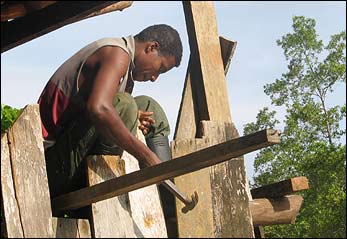
"UNHCR believes that considerable progress has been made towards fulfilling the commitments made by the Colombian authorities to the returnees," said UNHCR protection officer Ana Ferrero. However, some concerns remain: Despite the presence of some 80 policemen and 70 marines in Juradó, many returnees are still worried about their security. Many of those interviewed by UNHCR expressed fear to work their land as a result of the reported presence of irregular armed groups in the surrounding countryside. Most of the rural communities of the municipality remain uninhabited.
The enthusiasm generated in Juradó by last month's repatriation, nevertheless, continues to prevail. In the words of UNHCR's Vargas Llosa, "the returnees from Jaqué arrived in Colombia full of dreams and hopes for the future. The government of Colombia must facilitate their reintegration and make those dreams and hopes a reality. UNHCR is there to help in this process. At the same time, we should not forget those who chose to stay in Jaqué. They also have dreams and hopes. We have to continue working with the government of Panama to ensure that they also have a future."
By William Spindler
UNHCR Colombia

